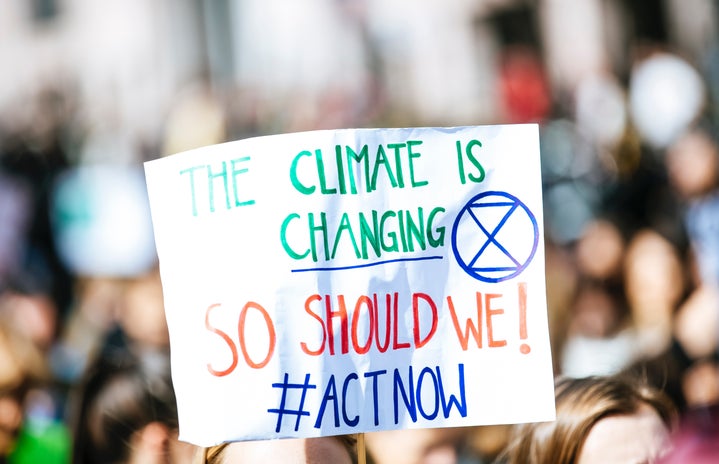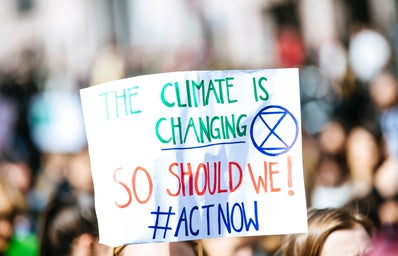From the use of reusable straws to bringing your own reusable bags to the grocery store, individual efforts at curbing the climate change crisis are necessary and admirable. However, our individual efforts can only go so far. Attacking people for forgetting their reusable cup or being unable to afford the top sustainable fashion brands isn’t a viable way to make considerable changes to the state of our environment – it’s time to hold major corporations accountable.
Corporations are where we get the vast majority of our products, ranging from the food we eat to the clothes we wear and the furniture we furnish our homes with. In the food industry, it was revealed through self-reports that the top 15 U.S. companies generate about 630 metric tons of greenhouse gasses per year. In the energy sector, a report released by the Carbon Disclosure Project (CDP) revealed that since the recognition of human-driven climate change, only 100 energy companies are responsible for 71% of all industrial emissions. The fossil fuel industry is arguably the top culprit — 25 fossil fuel companies are responsible for over half of the global industrial emissions.
Related: What a Biden Presidency Means For the Climate Crisis
The rate at which the companies we support every day are producing unnecessary waste, greenhouse gasses, and releasing dangerous carbon emissions is monumental, and if this doesn’t change, the global average temperature will go up by almost 4 degrees Celsius. Such an increase can lead to dangerous consequences, such as flooding as a result of rapid sea-level rise, increased natural disasters, widespread famine and more.
It’s clear that it’s time for change, but holding these corporations accountable for their consumption is proving difficult.
Related: There is no Climate Justice Without Racial Justice
Companies like BP and Delta have claimed to aim to go carbon neutral, and other companies like Microsoft and Ikea are taking on even bigger goals, aiming to reduce the amount of carbon dioxide in the atmosphere. With such lofty goals, it’s difficult to hold corporations accountable, as usually they are placed on long timelines (up to 25 years from now) and are difficult to measure.
Although climate activists and scholars have pushed for these new goals to be set for years, it’s difficult to keep faith that they will actually be met. According to a professor at Northeastern University, Shalanda Baker, “I’m just not sure if I have the faith, given that … corporations are very concerned about expenses and profits, that they would really think about something that may add cost.”
Related: 6 Indigenous Women Working for Environmental Change
In order to make any real change, it’s imperative that corporations and governments are held accountable. Governments should be supporting renewable energy efforts, implementing a carbon tax, assisting developing countries in their climate efforts, and enact legislation that places limits on carbon emissions. Corporations must stick to strict timelines that show real results in their emissions goals, and should use their monetary power to assist communities most vulnerable to the consequences of climate change.
While you can (and should) continue to do your part by participating in Meatless Mondays, carpooling or using public transportation, shopping second hand, or using your reusable straw, don’t fall for the myth that individual actions are to blame for the climate crisis. Keep doing your part to help where you can, and in the meantime, demand accountability from those really hurting our environment.



